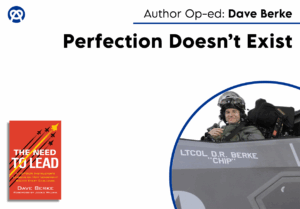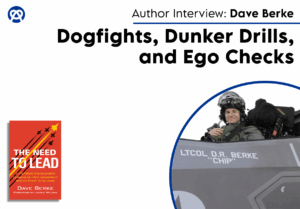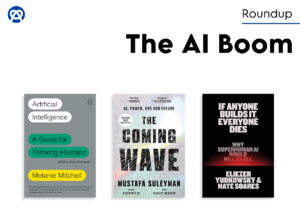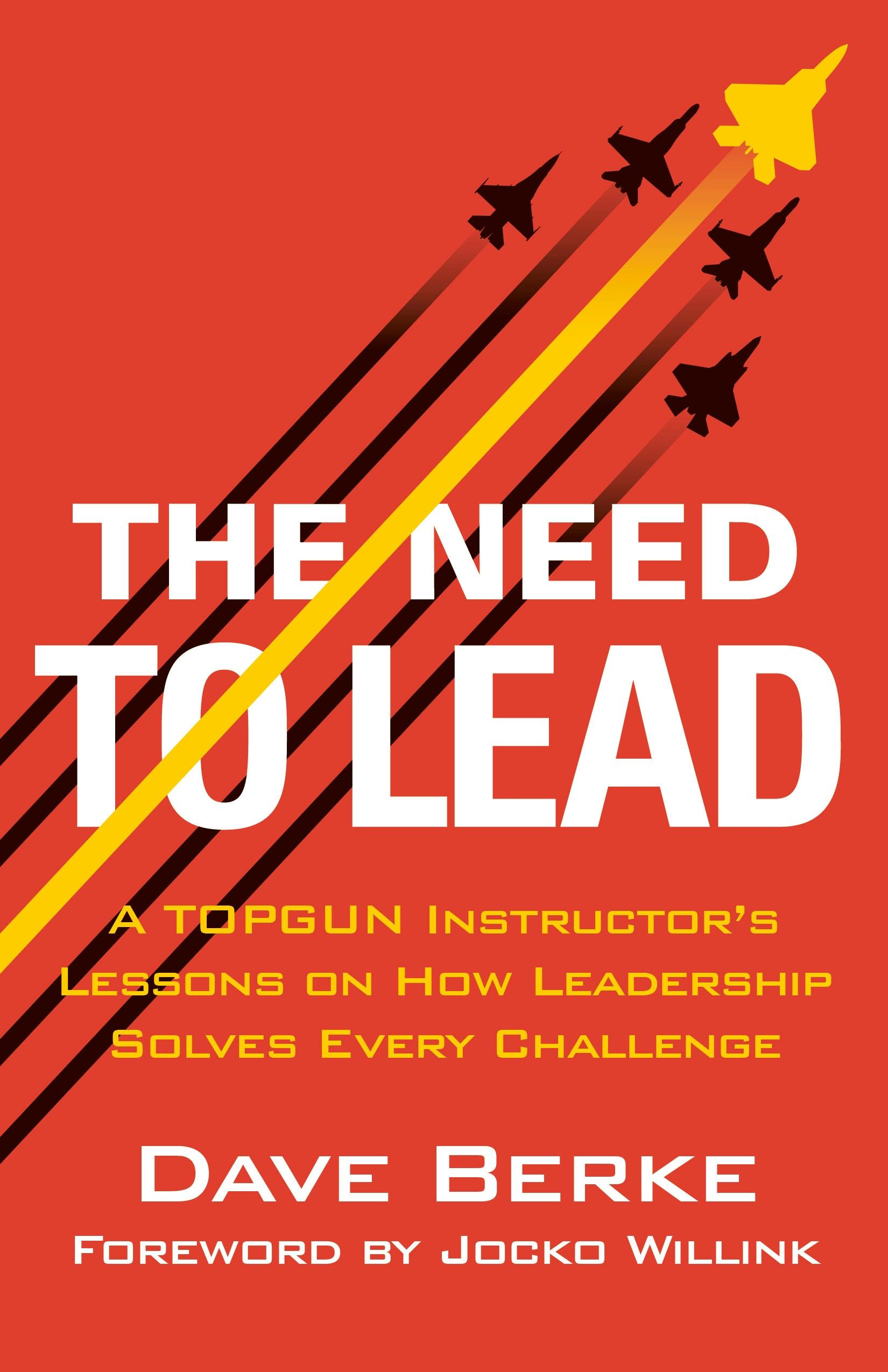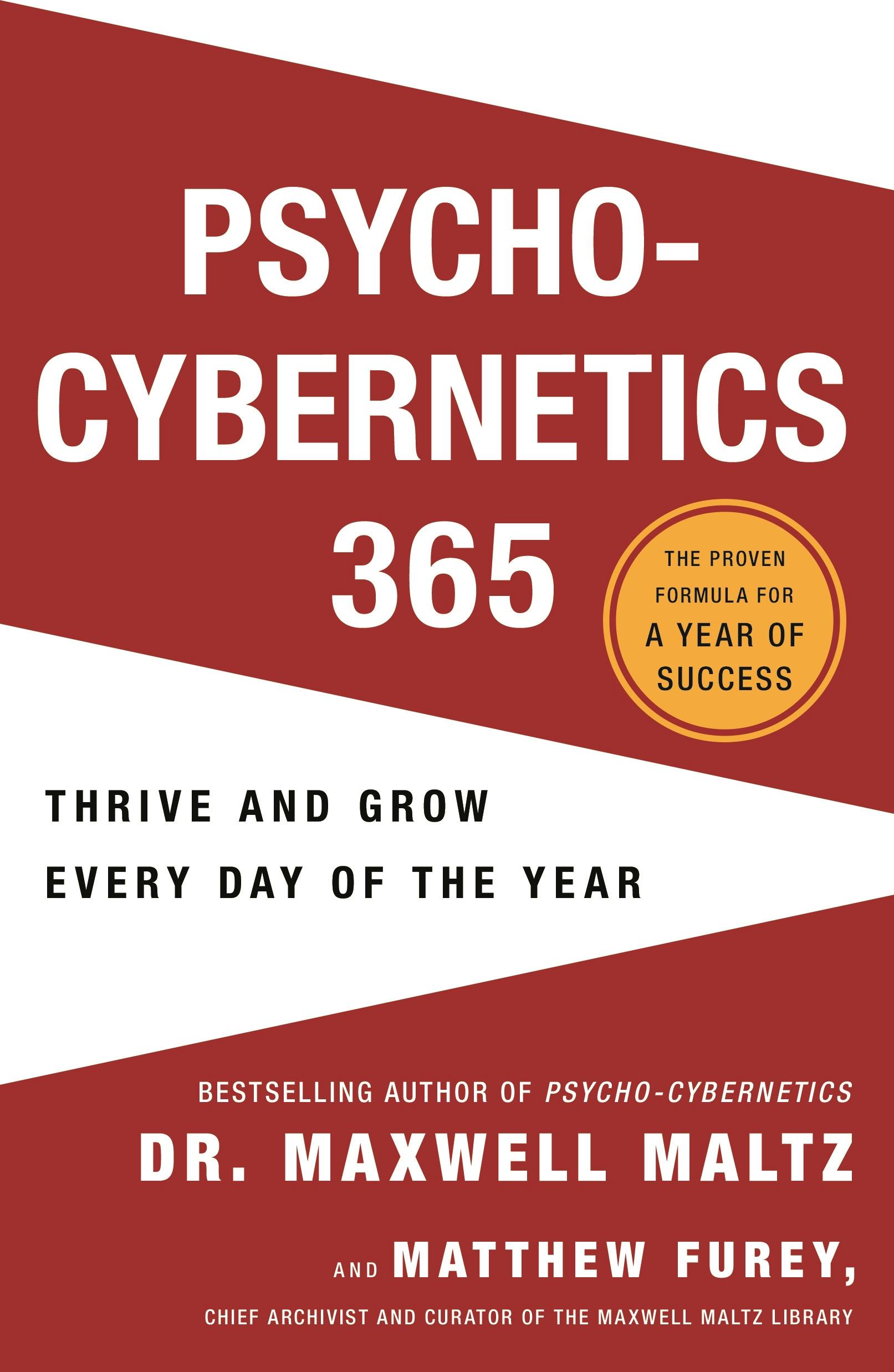What was once treated as science fiction, AI is now becoming more and more integrated into our daily lives in the workplace and at home. How did the race to develop AI begin? Where will it lead us in the future? What does it mean for our lives right now? This collection of books from AI experts tackle those very questions, and so many more, in this quickly changing landscape.
by Ethan Mollick
Since the launch of ChatGPT in 2022, Wharton professor Ethan Mollick has become one of the most prominent and provocative explainers of AI, focusing on the practical aspects of how these new tools for thought can transform our world. In Co-Intelligence, Mollick urges us to engage with AI as co-worker, co-teacher, and coach. He assesses its profound impact on business and education, using dozens of real-time examples of AI in action. Co-Intelligence shows what it means to think and work together with smart machines, and why it’s imperative that we master that skill.
by Yuval Noah Harari
Nexus looks through the long lens of human history to consider how the flow of information has shaped us, and our world. Yuval Noah Harari, author of Sapiens, asks us to consider the complex relationship between information and truth, bureaucracy and mythology, wisdom and power. He explores how different societies and political systems throughout history have wielded information to achieve their goals, for good and ill. Nexus is the groundbreaking story of how information networks have made, and unmade, our world.
by Melanie Mitchell
Award-winning author and leading computer scientist Melanie Mitchell’s acclaimed Artificial Intelligence offers an essential account of AI’s turbulent history and an accessible explanation of the different kinds of AI: how they work, how they fail, and how they compare to human intelligence and understanding. Along the way, Mitchell introduces the dominant models of modern AI and machine learning, describing cutting-edge AI programs, their human inventors, and the historical lines of thought underpinning recent achievements. Interweaving stories about the science of AI and the people behind it, Artificial Intelligence is an essential guide to understanding today’s AI and its impact on the future for us all.
by Nick Bostrom
Superintelligence asks the questions: What happens when machines surpass humans in general intelligence? Will artificial agents save or destroy us? Nick Bostrom lays the foundation for understanding the future of humanity and intelligent life. If machine brains surpassed human brains in general intelligence, then this new superintelligence could become extremely powerful – possibly beyond our control. Bostrom takes readers on an utterly engrossing journey that takes us to the frontiers of thinking about the human condition and the future of intelligent life.
by Mustafa Suleyman with Michael Bhaskar
Soon you will live surrounded by AIs. None of us are prepared. As co-founder of the pioneering AI company DeepMind, part of Google, Mustafa Suleyman has been at the center of this revolution. The coming decade, he argues, will be defined by this wave of powerful, fast-proliferating new technologies. In The Coming Wave, Suleyman shows how these forces will create immense prosperity but also threaten the nation-state, the foundation of global order. As our fragile governments sleepwalk into disaster, we face an existential dilemma: unprecedented harms on one side, the threat of overbearing surveillance on the other. This groundbreaking book from the ultimate AI insider establishes “the containment problem”—the task of maintaining control over powerful technologies—as the essential challenge of our age.
by James Barrat
In The Intelligence Explosion, James Barrat, a leading technology expert, equips readers with the tools to navigate the complex and often chaotic landscape of modern AI. This compelling book dives deep into the challenges posed by generative AI, exposing how tech companies have built systems that are both error-prone and impossible to fully interpret. Through insightful interviews with AI pioneers, Barrat highlights the unstable trajectory of AI development, showcasing its potential for modest benefits and catastrophic consequences. Bold, eye-opening, and essential, The Intelligence Explosion is a must-read for anyone grappling with the realities of the technological revolution.
by Eliezer Yudkowsky and Nate Soares
The scramble to create superhuman AI has put us on the path to extinction—but it’s not too late to change course, as two of the field’s earliest researchers explain in this clarion call for humanity. Eliezer Yudkowsky and Nate Soares have studied how smarter-than-human intelligences will think, behave, and pursue their objectives. Their research says that sufficiently smart AIs will develop goals of their own that put them in conflict with us—and that if it comes to conflict, an artificial superintelligence would crush us. The contest wouldn’t even be close. In If Anyone Builds It, Everyone Dies, Yudkowsky and Soares walk through the theory and the evidence, present one possible extinction scenario, and explain what it would take for humanity to survive.
by Kate Crawford
Drawing on more than a decade of research, award‑winning scholar Kate Crawford reveals in Atlas of AI how AI is a technology of extraction: from the minerals drawn from the earth to the labor pulled from low-wage information workers to the data taken from every action and expression. Crawford reveals how this planetary network is fueling a shift toward undemocratic governance and increased inequity. Rather than taking a narrow focus on code and algorithms, Crawford offers us a material and political perspective on what it takes to make AI and how it centralizes power. This is an urgent account of what is at stake as technology companies use artificial intelligence to reshape the world.
by Stuart Russell
Stuart Russell, a leading artificial intelligence researcher lays out a new approach to AI that will enable us to coexist successfully with increasingly intelligent machines. In the popular imagination, superhuman artificial intelligence is an approaching tidal wave that threatens not just jobs and human relationships, but civilization itself. Conflict between humans and machines is seen as inevitable and its outcome all too predictable. In Human Compatible, Russell argues that this scenario can be avoided, but only if we rethink AI from the ground up.
by Karen Hao
When AI expert and investigative journalist Karen Hao first began covering OpenAI in 2019, she thought they were the good guys. What could go wrong? Over time, Hao began to wrestle ever more deeply with that question. Hao maintained her deep sourcing within the company and the industry, and so she was in intimate contact with the story that shocked the entire tech industry—Sam Altman’s sudden firing and triumphant return. The behind-the-scenes story of what happened, told in Empire of AI in full for the first time, is revelatory of who the people controlling this technology really are. By drawing on the viewpoints of Silicon Valley engineers, Kenyan data laborers, and Chilean water activists, Hao presents the fullest picture of AI and its impact we’ve seen to date, alongside a trenchant analysis of where things are headed. An astonishing eyewitness view from both up in the command capsule of the new economy and down where the real suffering happens, Empire of AI pierces the veil of the industry defining our era.













